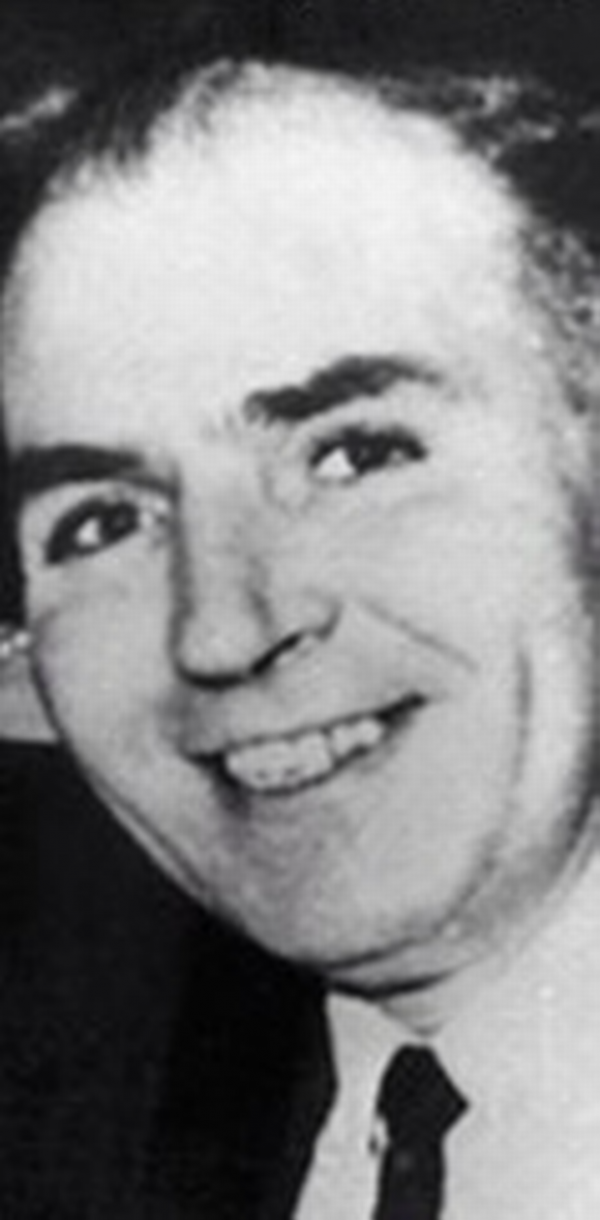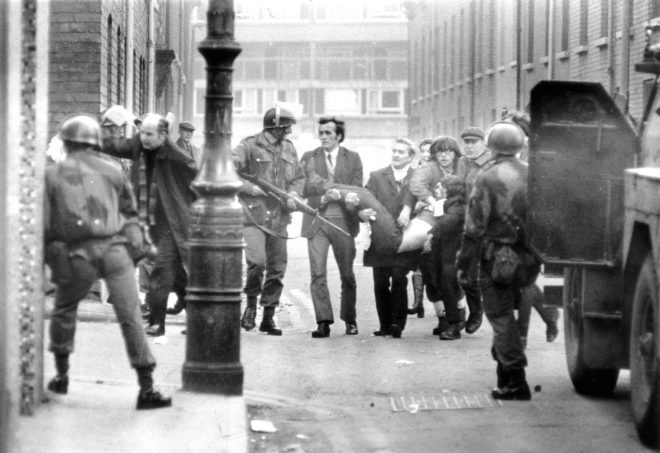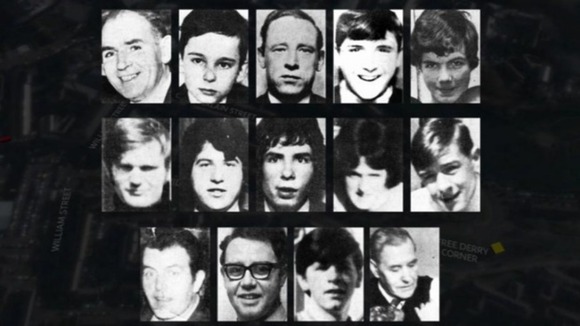
Bloody Sunday murder victim Bernard ‘Barney’ McGuigan
Senior judges rejected claims that Bernard McGuigan’s relatives were not entitled to the aggravated damages for injury to his feelings.
The MoD argued against the payment because he died instantly.
Mr McGuigan was shot as he went to the aid of another man.
Thirteen people were killed and 15 wounded when members of the Army’s Parachute Regiment opened fire on civil rights demonstrators in Derry on Sunday 30 January 1972.
A 14th person later died of his injuries.
On Thursday, judges backed a finding that Mr McGuigan, a father-of-six, would have experienced fear and dread when members of the Parachute Regiment opened fire.
Lord Justice McCloskey said: “All of this conduct… was capable of generating in every person of normal mental fortitude in the area a reasonable apprehension of being shot or wounded.”
In 2010 the Saville Inquiry into the shootings established the innocence of all of the victims.
Those findings led to the then Prime Minister David Cameron issuing a public apology for the soldiers’ actions.
He described the killings as “unjustified and unjustifiable”.
Liability has been accepted by the MoD in legal actions taken against it by those bereaved or injured.
Court proceedings have centred on the level of damages in each case, with more than £3m in total paid out to date.
Mr McGuigan, known as Barney, was a painter and decorator.
 He was shot at the Rossville Flats area as he went to the aid of 31-year-old Patrick Doherty, who was also shot dead on the day.
He was shot at the Rossville Flats area as he went to the aid of 31-year-old Patrick Doherty, who was also shot dead on the day.
The 41-year-old had been waving a handkerchief or towel when he was hit by a bullet to the head, killing him instantly.
A claim by his estate was settled for £258,000.
A High Court judge then awarded a further £15,000 in aggravated damages.
He found that the soldier’s actions would have “filled the deceased with fear and dread, coupled with a strong sense of indignation and hurt at being the innocent victim of a blatant, unprovoked and unjust attack by members of the Army.”
The MoD went to the Court of Appeal to challenge the additional award, claiming it was wrong in law because Mr McGuigan’s death was instantaneous.
But counsel for his family insisted the payout was justified by the terror he experienced during the shootings.
Mr McGuigan had been sheltering behind a wall when he went out to try to offer help, clearly aware he was put himself in danger, the court heard.

Killed on Bloody Sunday: The victims
Ruling on the appeal, Lord Justice McCloskey described the MoD’s case as unsustainable and affirmed the £15,000 compensation for aggravated damages.
He also made an award of costs of the hearing against the MoD.L
Tags:




